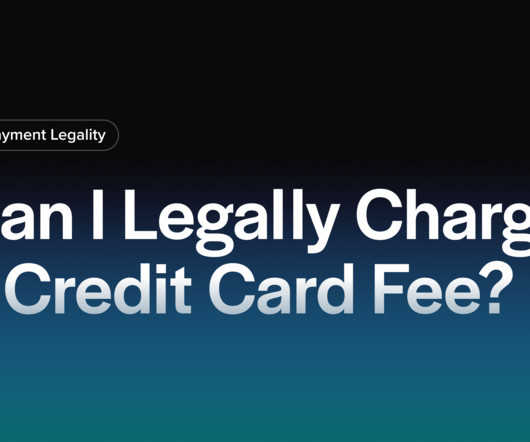What Is a Convenience Fee & Should You Charge It?
Payment Savvy
JULY 12, 2024
For example, you could add a convenience fee if your standard payment method is cash or check, but a customer wants to pay over the phone or online with a credit card. This fee compensates for these alternative methods’ higher processing costs and potential risks.













Let's personalize your content